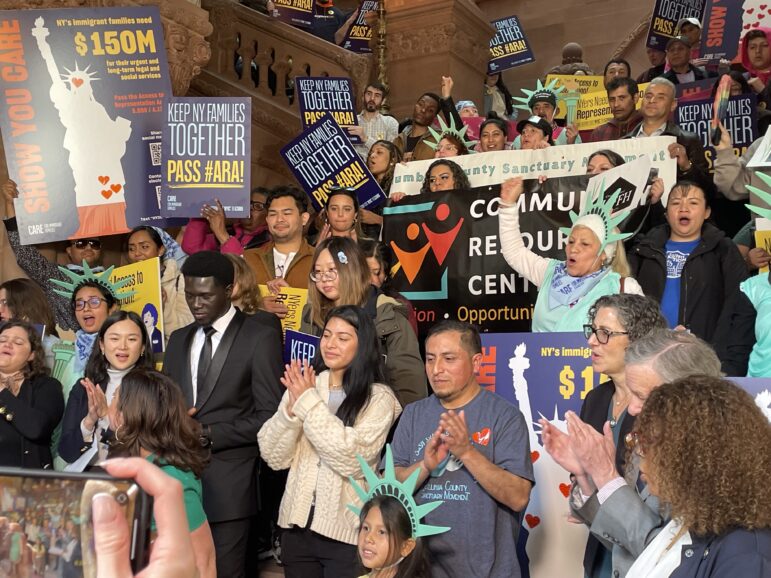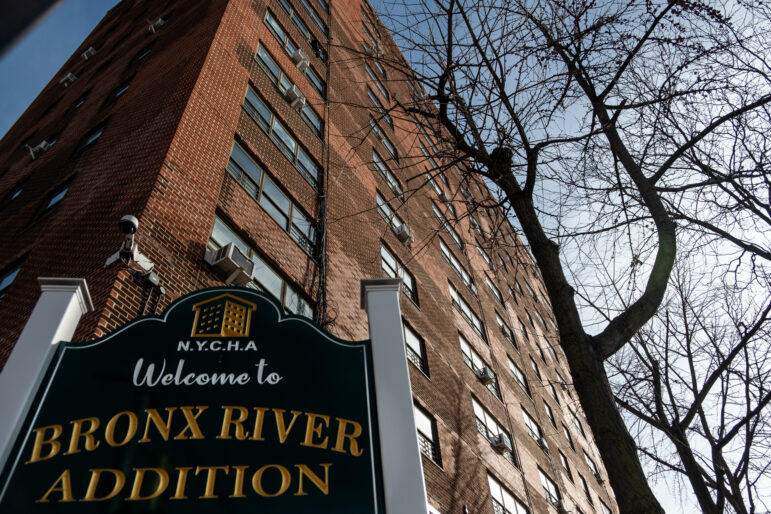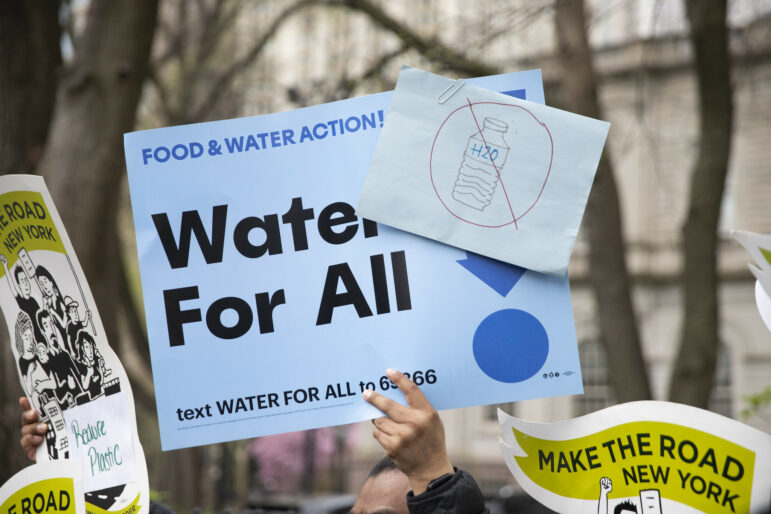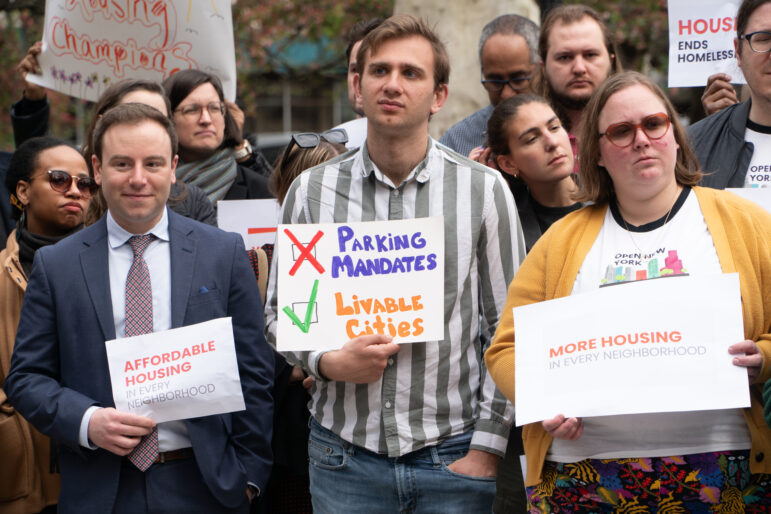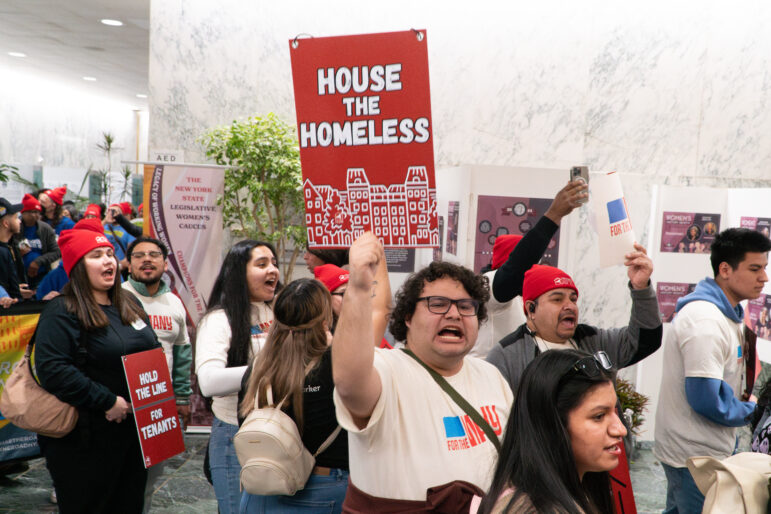Queens politics has always been played by a clear set of rules. A tight circle of club leaders governs the borough from behind closed doors. These men decide who wins the Democratic party’s backing, who gets coveted patronage jobs in city and state bureaucracies, and, let’s not forget, who represents the people who live here.
Occasionally, there are shifts in power, but the rules have remained the same. In the 1980s, when black politicians like ex-Congressman Floyd Flake and Archie Spigner built a power base around churches in the southern part of the borough, political life for the kings of Queens went on as usual. The white bosses accepted these new players with the understanding that they would stick to their own turf. Under what amounted to a non-aggression pact, neither side challenged the other’s leadership or patronage. Just as white Queens always had, black leaders formed their own cliques and chose their own favorites to go to City Hall, Albany, Washington.
There the balance of power has remained, with the old-line Queens pols maintaining political primacy: The Northern Queens power brokers have always chosen the candidate for borough president, and that candidate has always been white. But in the tumultuous political climate created by this year’s city term limits, this delicate arrangement may well disappear. For the first time ever, a black politician is making a credible bid to become Queens borough president. And her candidacy has the potential to reshuffle political power in the borough for a long time to come.
Part machine politician, part maverick, City Councilmember Helen Marshall is probably not anybody’s first idea of a trendsetter. But she has dared to seek a seat that has always been Catholic or Jewish. And to snag it, she’ll have to shake up two political worlds that until now have been comfortable for everyone. Marshall will have to convince Flake that she has crossover appeal. She’ll also have to win the confidence of Tom Manton, ruler of the Queens Democratic party.
So far, neither Manton nor Flake is talking. But in a crowded field of Democratic primary candidates–almost all of them white and Jewish–Marshall has a shot at pushing through. Queens has an estimated 250,000 potential black voters, who have never before had a chance to vote for one of their own as borough president. Marshall is counting on them to help her prevail over a divided white vote.
Marshall has allegiances in both the white and black Queens establishments, and they could give her an edge no other borough president candidate has. If she succeeds in rallying enough support on both ends of the borough–among black, white and a booming number of immigrant Queens voters–Marshall has a shot at getting Flake, a longtime friend, solidly behind her. If that happens, Marshall’s candidacy could rip open an irreparable fissure in the Queens political landscape.
“Party chiefs can’t endorse a candidate in every race without making enemies. That’s why they’re afraid to make any moves right now,” says George Delis, a former candidate for the state Senate from Astoria and prospective Council candidate. “Right now, it looks like we’re going to have an all-out war.”
_______
And no wonder. The Queens borough presidency never really comes up for grabs. Current seatholder Claire Shulman inherited the job from Donald Manes, who like his predecessors was handpicked far in advance by the borough leadership. (Conveniently for Manes, he was also leader of the Queens Democratic party.)
What it will take to win the prize this time, no one knows for sure. But observers say that nailing down support in the borough’s traditional voting blocs is essential. There’s the African-American and Caribbean southeast; the mainly Jewish northeast, centered around Forest Hills; and the western and central regions, where the voters are mostly Catholic. Major backing from two of these three sectors can guarantee an election victory.
Marshall’s declared opposition in the primary has solid roots in northern Queens. Councilmember Sheldon Leffler, ex-Board of Education member Carol Gresser, Assemblywoman Audrey Pheffer and Councilmember Karen Koslowitz are all Jewish. Pheffer, who represents the Rockaways, Ozone Park and Howard Beach, is the only one of those four who is not from the northeast, although she gets a lot of support there.
Marshall can joust with these candidates because she has roots and alliances in the same places they do. Her political career began by serving on Community Board 3, in Corona, which once was largely Italian. This led to her election as Democratic district leader and a stint as a Democratic national committeewoman. She then spent nine years in the state Assembly, then left to join the City Council because she was “more interested in urban affairs.” Over the years, Marshall has cultivated friendly relationships with Queens heavyweights such as City Council Speaker Peter Vallone, Manton, Flake and outgoing Borough President Claire Shulman.
But given the competition, Marshall is a long-shot in old-line Queens. She’s counting on the new Queens to pull for her–the fast-growing Latino and Asian communities that, so far, have failed to secure political power of their own. Both have viable candidates for open City Council seats this year. Those races could bring unprecedented numbers of Asian and Latino voters to the Queens polls–enough to help decide the borough president contest.
The candidate, whose largely black, Latino and Asian council district in Corona is one of the hubs of new Queens, is keenly aware of her advantage. “I am proud to represent a cosmopolitan district,” says Marshall. “I know I can represent a large array of ethnicities, and I should be able to get their support.”
Marshall has another step up on the competition: She herself is multiethnic. The daughter of immigrants from Guyana, she is of Indian, African and Scottish descent; she has Portuguese relatives and had a southern, African-American stepmother. “I see myself as a unifier because I have always been able to bring people together,” she says. “Queens is changing and shifting at a very fast pace, and that’s an important skill.”
Politically, Marshall has been astute at choosing battles that appeal to her diverse constituents’ often-conflicting interests. She once fought the Department of Buildings to help a group of Indian immigrants establish a temple on 44th Avenue in Corona. She’s been involved in monitoring police brutality complaints, and publicly reprimanded former Yale president Benno Schmidt for publishing a report on the CUNY system that she felt portrayed Latinos and African-Americans as less intelligent than whites and Asian-Americans. Yet she was also critical of African-Americans who organized a boycott of a Korean grocery in her district.
But some observers question her reputation as a bridge-builder. “Her presence signals that some changes are taking place [in Queens politics], but she’s part of the structure of the party,” says Angelo Falcon, a senior policy executive for the Puerto Rican Legal Defense and Education Fund. “The whole system needs to be shaken up, and she’s not that different from the rest. Latinos, for example, still feel alienated.”
_______
In a borough where political alliances are usually as obvious as the weather, this year is remarkable for its haze. Thanks to term limits, at least five candidates are vying for each council seat in most districts, and the mayoral race also looms large. As a result, the established pols are unusually nervous about making commitments. “I think there are more candidates than voters,” jokes Community Board 4 District Manager Rose Rothschild. “How can you choose one?”
James Lisa, the Democratic district leader from Corona and a candidate for Marshall’s City Council seat, sees the crowded field as a threat to delicate relationships. “The politicians in this borough deal with each other on a personal level,” says Lisa. “That makes it really difficult to make endorsement decisions, especially now that there are so many friends running. The friendships have got to be more important.”
Indeed, in a recent interview, Vallone was willing to promote his son, Peter Jr., to be his successor on the council but not to talk about the borough presidency. And Manton is mute, except to deny a report that claimed he was dumping Vallone to support Alan Hevesi for mayor.
Hevesi and Shulman can deliver a large chunk of the Jewish vote, but they’re not talking either (though Shulman has helped Assemblywoman Pheffer raise money). The usually brash Shulman released the following noncommittal statement: “Audrey is a fine public official who would make a super candidate, but I also have great admiration for Helen, Karen and Sheldon.”
This past fall, Marshall claimed that Flake was behind her candidacy. But when that report made its way into a local paper, Flake promptly announced that he had not yet decided who he was going to back.
Still, as long as the old Queens candidates are aplenty and the endorsements slow in coming, Marshall has the advantage. “Politics is basically ethnic, or at least it always comes back to that,” says a Democratic party insider. “In a boroughwide race like this, every candidate goes after the Jewish vote first. You have to because you can’t win without it. There are a lot of them, and they vote…. I don’t think Marshall can get the Jewish vote, but if four Jewish candidates divide [the race] between them, then she’s got a shot.”
Already there are some cracks in the Jewish bloc. So far, Gresser has raised the most money, but she had a falling out with Shulman after Shulman appointed her to the Board of Education. They had been close friends for years, but Gresser fought with Mayor Rudolph Giuliani, a Shulman ally, over the multicultural initiatives of then-Schools Chancellor Raymond Cortines. As a result, Shulman didn’t reappoint Gresser when her term expired.
With so many Jewish candidates in the pipeline, the Queens establishment will probably not endorse Marshall. But their uncharacteristic reluctance to support any candidate at all could be Marshall’s killer advantage. “Once the Democratic organization gets behind a candidate, they can do whatever they want. They’re unstoppable,” says Delis. “But if they’re quiet or wait too long, unattached people will have an opportunity.”
To have that opportunity, Marshall will have to convince Manton that the jobs in Queens Borough Hall will still belong to his people. She’ll also have to prove to the rest of the borough that she can get things done for Queens. Some observers question whether she has ability to wrestle new money, for things like parks, street improvements and social programs, out of the City Council. “She goes to the right meetings and asks the right questions, but that’s just for show. At the end of the day, she doesn’t deliver,” says the leader of a large western Queens civic group. “I don’t think she’s learned how to work the system to benefit her constituents like some of the other pols.”
Lisa disagrees. “She’s brought a lot of programs into Corona, and she’s worked in harmony with the other officials. She fights for anything that helps the district and is not afraid to voice her opposition,” he observes. “For people in this area to vote for a woman was almost impossible when she first ran–and to vote for a black woman was out of this world. But she earned their respect, and she’s kept it.”
Rob MacKay is a reporter/editor for the Times Newsweekly of Queens. Robert Neuwirth is a Brooklyn-based freelance writer. Additional reporting by Kevin Fleming.


